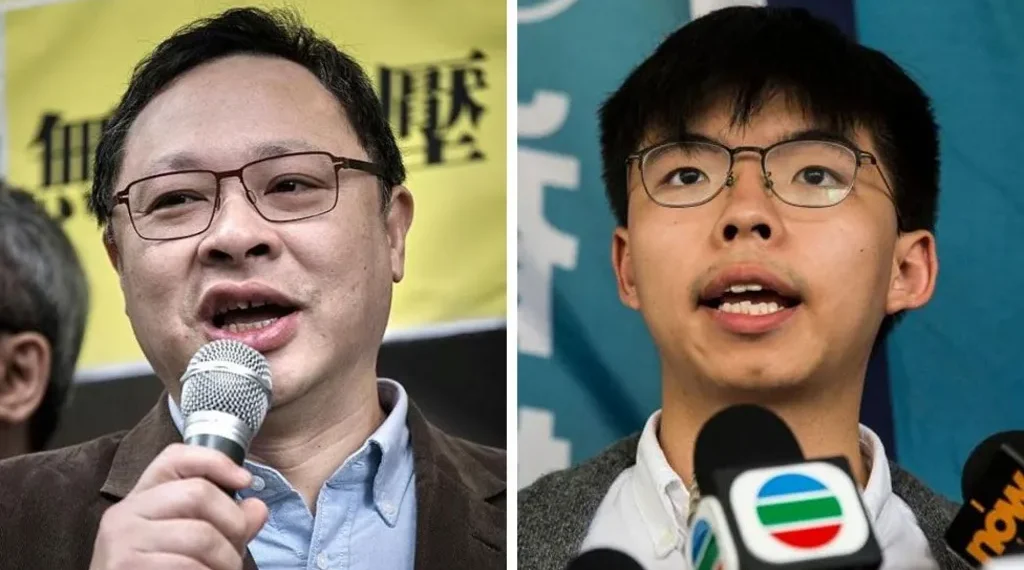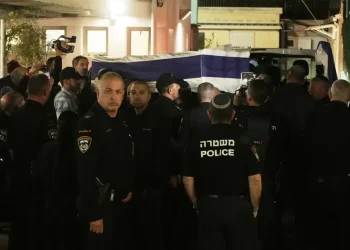Top Hong Kong Pro-Democracy Leaders Sentenced to Prison
A Hong Kong court has handed down prison sentences to prominent pro-democracy leaders for subversion charges stemming from a high-profile national security case.
Benny Tai, a former law professor, and activist Joshua Wong are among the 47 pro-democracy lawmakers and activists involved in organizing an unofficial primary election in 2020 to challenge Beijing’s influence in Hong Kong. Tai received a 10-year sentence, while Wong was sentenced to over four years.
Of the group, 45 were found guilty of conspiracy to commit subversion under China’s controversial National Security Law (NSL), imposed on Hong Kong following the city’s massive pro-democracy protests in 2019. Two individuals were acquitted in the trial.
A Landmark Case Under the National Security Law
This trial marks the largest application of the NSL, a law criticized for curbing freedoms in Hong Kong. Protests in 2019 initially began as opposition to a controversial extradition bill but quickly grew into a larger movement for democratic reform. The protests culminated in widespread demands for greater autonomy from Beijing.
Critics argue the law has severely undermined Hong Kong’s democratic institutions and rule of law, allowing Beijing to tighten its grip on the semi-autonomous region. In contrast, Chinese officials and Hong Kong’s government maintain the law is essential to preserving stability and national security.
China’s foreign ministry defended the verdict, stating, “No one can engage in illegal activities under the guise of democracy and evade justice,” and criticized Western nations for “undermining the rule of law in Hong Kong.”
A Blow to the Pro-Democracy Movement
The sentencing has dealt a significant blow to the already weakened pro-democracy movement. Prominent figures like former journalist Gwyneth Ho and lawmakers Claudia Mo and Leung Kwok-hung were sentenced to between four and seven years.
Inside the courtroom, family and supporters waved to the defendants, some visibly emotional as the sentences were read. Joshua Wong, already in prison for earlier activism, declared, “I love Hong Kong,” before being led away.
The National Security Law has also raised international concerns. The United States labeled the trial as “politically motivated,” while Australia expressed “grave concern,” particularly regarding the sentencing of Australian citizen Gordon Ng.
The 2020 Primary Election and its Fallout
The case centers on the unofficial 2020 primary election, organized by activists to boost the opposition’s chances of blocking pro-Beijing bills in the Legislative Council. Over 600,000 Hongkongers participated, showcasing significant public support for the pro-democracy camp.
While the organizers argued their actions were within the legal framework of Hong Kong’s Basic Law, Beijing saw it as a direct challenge. Authorities accused the group of attempting to “overthrow” the government and arrested them in early 2021.
The judges ultimately sided with the prosecution, arguing the plan could have caused a constitutional crisis.
Criticism of the Verdict
Human rights groups and legal experts have condemned the sentencing. Human Rights Watch described it as an example of how Hong Kong’s civil liberties and judicial independence have “nosedived” since the enactment of the NSL.
Emily Lau, a former chair of the Democratic Party, highlighted the pervasive fear under the law, noting that even small gatherings are now avoided due to concerns over arrests.
John Burns, an emeritus professor at the University of Hong Kong, argued the trial was part of a broader effort to “re-educate” Hong Kong residents, emphasizing that national security is Beijing’s top priority.
The Future of Activism in Hong Kong
The pro-democracy movement has been left in disarray, with many activists in prison or in exile. Sunny Cheung, who fled to the United States after participating in the 2020 primary, said Beijing’s crackdown has alienated a generation of Hongkongers.
“They might have silenced the opposition,” Cheung said, “but they’ve lost the trust of the people.”
Activists like Emily Lau remain determined to continue advocating for democracy, albeit within the confines of the law. “The fight will go on,” she said, “but it will be peaceful and legal.”
However, with harsh penalties and increasing self-censorship becoming the norm, Hong Kong’s pro-democracy movement faces its most challenging chapter yet.
This article was rewritten by JournosNews.com based on verified reporting from trusted sources. The content has been independently reviewed, fact-checked, and edited for accuracy, neutrality, tone, and global readability in accordance with Google News and AdSense standards.
All opinions, quotes, or statements from contributors, experts, or sourced organizations do not necessarily reflect the views of JournosNews.com. JournosNews.com maintains full editorial independence from any external funders, sponsors, or organizations.
Stay informed with JournosNews.com — your trusted source for verified global reporting and in-depth analysis. Follow us on Google News, BlueSky, and X for real-time updates.













